- Home
- Greg Keyes
Dawn of the Planet of the Apes Page 6
Dawn of the Planet of the Apes Read online
Page 6
She makes M-A-R-Y with the letters. He notices one is the same as in Koba. He isn’t sure what this is supposed to mean.
Mary is pleased, though. She gives him another cookie, and then they go outside. Koba feels the wind ruffle his fur and climbs around on the tree. He loves the tree, to swing on it and jump from limb to limb.
After a while he goes down and plays with his mother.
“Tickle me,” he signs to her, so she does, and he is happy. He presses himself against her, then runs back over to the tree, feeling his arms stretch out and grow warm. The sun is warm, too.
He finds a thing crawling on the tree. It is about the size of his smallest finger and is covered with black fuzz.
Mary sees him studying the thing and comes over.
“Caterpillar,” she says. “Fuzzy caterpillar.”
Koba plays with the caterpillar. He tries to sign to it, but it doesn’t answer. He puts it back on the tree and watches curiously as it crawls away. Then he returns to playing.
After a while Mary tells them it is time to go back inside. Koba doesn’t want to go. He wants to play more outside. Mary calls Kuo to bring the leash. Kuo comes and tries to put the leash on Koba, but Koba jumps back.
“Naughty Koba,” Kuo says, laughing, and tries to put the leash on again. Koba jumps back again. He likes this game. He and Kuo play this game all the time.
“Hey, Koba, what’s that over there?” Kuo says, pointing. Koba knows what will happen—this is how the game always ends. He pretends to look, and the leash goes over his head. He submits and goes with Kuo.
Inside, Kuo gives him a hug and tells Koba he will miss him. Koba wonders why, because Kuo is usually there at night.
But tonight a new person comes. His name is Roger.
* * *
The next day, lots of people come to see Koba’s mother talk to Mary with her hands, and then watch Koba press the buttons. They laugh when he is asked to find “peanut” and he presses it several times because he likes peanuts. He likes it when they laugh.
Then something strange happens. They put something else in the room with Mother and him. It is big and fuzzy and black.
Mother does the hand talk, but it just looks at her. Koba tries to talk to it to, but it doesn’t even look at his hands. It just walks away.
“Do you know what that is, Koba?” Mary asks. “Can you tell us what that is?”
Koba looks uncertainly at the thing, and then at his buttons. Finally he starts pressing them. Furry. Snake. Bug.
Mary laughs.
“Are you trying to call her a fuzzy black caterpillar?”
Koba presses the button that means “yes.”
Everyone laughs.
“He doesn’t know it’s a chimp?” someone asked.
“No, because Wanda—that’s her name—can’t sign,” Mary says. “Washoe, one of the first language apes, called the first chimps he ever met ‘big black bugs’ because they couldn’t do sign. Chantak, an orangutan, called non-signing orangs ‘red hairy dogs.’ Koba thinks of himself as a person, and people talk. If something can’t talk, it’s not a person, so Koba thinks it must be something else.”
Koba wonders what Mary is talking about. He doesn’t know what the word ‘chimp’ means.
He points at the new thing.
Big black caterpillar, he signs.
Big black caterpillar, his mother signs back in agreement.
* * *
That night Koba has trouble sleeping. The big caterpillar is still in their room, and it scares him. But his mother tickles him and tells him he is beautiful, like a banana or a red flower or a kitten, and he finally goes to sleep.
The next day Mary lets them go outside again. Everything is a little bit wet, which Koba likes. It makes everything smell different. It never smells this way inside, even when they wash the cages. He thinks maybe it is the sky he is smelling, which today is big and blue. He tries to reach out and touch it, but it is higher than the top of the cage.
The big black caterpillar just goes to the top of the tree and sits there.
When Mary says to come in, Koba doesn’t want to. He wants Kuo to play the game with him. But instead of Kuo, Roger comes out. He tries to put the leash on Koba, but Koba jumps back. He tries again, but Koba jumps back again. Then Roger starts yelling words Koba doesn’t know, and it scares Koba. He wonders what he has done wrong, why Roger is yelling at him, why he doesn’t end the game. He finally gets so frightened he submits, and Roger puts the leash on him. Then he yanks it so hard it hurts Koba’s neck. Koba is so startled he yanks back, then, and in a flash of anger, jumps at Roger.
He doesn’t intend to hit him—and he doesn’t—but Roger stumbles back and falls down. He yells some more.
Mary takes the leash.
“You don’t have to be so rough,” she tells Roger.
“He’s just a dumb animal,” Roger tells her.
Koba wonders what a dumb animal is.
* * *
That night, Roger yells more words Koba doesn’t know. He has a sack in one hand, and a bottle in the other. He is drinking something that smells bad from the bottle. He hits the cage with his fist, and the big black caterpillar starts screaming.
Roger gets the leash. He comes into the cage with the leash and the bag, and walks over to him. The bag is long and looks heavy, like there’s something in it.
“You’re so smart,” Robert tells him, “then learn this lesson. See this? Leash. When I show you this, you let me put it on.”
Koba stares at the leash, not sure what he is supposed to do. He is scared—the big caterpillar is still screaming, and it disturbs him.
When Roger moves forward, he cowers back.
“Oh, no you don’t!” Roger says, and he swings the bag at him. When it hits Koba, it knocks all of the wind out of him, and he can’t breathe. Lights seem to flash in his eyes.
Koba good, Koba good, he signs desperately, but Roger swings the bag again. Koba can smell what’s in it now—oranges.
This time Roger misses Koba, because Mother jumps at him. She bites his hand.
Roger screams, and then he hits Mother with the bag. He hits her again, and again, until she backs into the corner, pulling Koba with her. He hides behind her.
Roger finally backs out of the room and closes the door.
“Stupid animals,” he says. He takes a drink from his bottle and then goes somewhere else.
Koba nuzzles up to his mother. He grooms her fur. She puts her arms around him.
Tickle, he signs.
So she tickles him until he falls asleep.
* * *
When he wakes up, Mother is very stiff. He can’t make her arms move. Her eyes are open, but she doesn’t seem to see him. She is cold.
Mother see Koba, he signs, but she doesn’t answer. He tries to make her fingers sign, but they are hard and won’t move.
Later, Mary comes in and tries to sign to Mother. Then she comes in the cage and touches her. She starts making strange noises, and water comes out of her face. Koba nestles up with Mother again, scared, but not sure of what. Mary puts her hand on Mother’s face and when she moves it again, Mother’s eyes are closed.
She is asleep.
Mary takes him outside, but Mother won’t go. He plays, at first worried about Mother, but then he becomes occupied witch watching the clouds, which are moving slowly but making interesting shapes. Some of them look like some of his buttons.
When Mary calls him in, he doesn’t want to play his game—he wants to see Mother. She should be acting right again by now.
But when he goes in, Mother is not there. Just the big caterpillar.
Mother, he signs to Mary. Koba want Mother.
“She’s gone, baby,” Mary says. “I’m sorry.”
* * *
The next day, Koba doesn’t want to play the game with the buttons. When he goes outside, he looks for Mother, but she isn’t out there. He wonders where she is.
A few days pass like
this. Each day, Mary tries less and less to make him play with the buttons or talk with his hands. Finally, one day she picks him up. He likes it, because without Mother, there is no one to touch him.
“You’re getting so big,” Mary tells him. Then she makes a windy sound.
“Koba,” she says, “I know you won’t understand all of this, but our program funding has been cut. It’s complicated, but you won’t be living here anymore. I won’t get to see you anymore.”
Mother, Koba signs.
Mary shakes her head.
“You’re going to a nice place with nice people,” she says. “You’ll be okay.”
And the next day a man comes and put a leash on him. He puts him in a little cage in a thing that moves, and they go to another place. It takes a long time, and Koba cannot even stand up in the cage. He gets sick from moving. He gets scared and bored and unhappy.
* * *
Koba blinked, and stared at the dead apes, at the eyes Caesar had just closed, and then he understood. His mother had been dead. Roger had killed her, somehow, with his bag of oranges.
Something nudged him, and Koba started. It was Caesar.
Koba, he said. Go back to Maurice. Be on guard there.
For a moment, Koba felt a flash of anger. Guard the wounded? He wanted to be with Caesar. He wanted to hunt, to fool the humans, to fight them again if need be.
And he wanted to protect Caesar.
But he also wanted to please Caesar, and that meant doing what he said. So he gave submission and reluctantly went up the nearest tree. But he paused and looked back as Caesar and his band went off in the other direction.
Caesar had divided the troop into three smaller bands. One was with Maurice. It was the largest and included the wounded, the infants, and wild apes who knew how to find food. They were staying mostly in one place. The second group was with Rocket—they were to draw humans away from Maurice and his band, to hunt small animals, and to find human food where they could.
The third group was led by Caesar himself, and would do much the same as Rocket’s bunch. When Caesar had asked Koba to help carry the bodies, he had hoped he would remain a part of Caesar’s band.
But it seemed Caesar didn’t really trust him. No one ever had, he realized. Until now, that had not bothered him. But he wanted Caesar to trust him, and he wasn’t even sure why. It would mean something, he thought—but he couldn’t think what it would mean exactly.
* * *
When she got to work, Talia still had a little bit of a glow from her father’s grudging pseudo-approval. But the reality of the situation soon overwhelmed that.
The CDC had been quietly trying to prepare the public for what could be a serious epidemic, rolling out ads on how to best avoid the disease, and what to do and where to go if symptoms manifested. Local and national news caught on a little before things were ready, and this was the result…
The waiting room was packed, and there was a line out the door. A lot of them were wearing masks, some improvised. Everyone thought they had symptoms, although triage was turning most of them away because they were perfectly healthy.
She dove right in, and it was more than an hour before she took a break from setting a broken arm to grab a cup of coffee. The little flat-screen television in the café was on, and she stood and watched for a minute. Dreyfus, the former police chief, was announcing his candidacy for mayor. She wasn’t sure she liked him enough to vote for him, but when he was asked about the retrovirus and he started cautioning against panic, she nodded.
It was the right message. She hoped people heeded it.
She checked her text messages and saw that David Flynn had left one. She hadn’t heard from him in a while, and wasn’t sure how she felt about it now. When she read the message, though, she realized he was writing a piece on the virus, and wondering if she had any insights to share. So she just nodded knowingly, and put the phone away.
Talia was about to look at what was next when she heard screaming coming from one of the triage rooms. She bolted out the door and down the hall.
When she got there, she found a man in his mid-thirties, brandishing a knife at Ravenna. The nurse was visibly shaken, but she didn’t look hurt.
“Okay,” Talia said, holding out her hands, palms forward, and trying to sound calm. “What’s going on here? What’s the matter?”
“What’s going on,” the man shouted, “is this stupid bitch says there’s nothing wrong with me. But I know I’ve got it. I know I do. And I want the vaccination or whatever. The cure.”
She heard a scuffle of feet behind her and saw that Biggs, the security guard, was there, with his pistol drawn.
“Wait!” she shouted. “Just hang on. I’ll see you, Mr.—?”
“Max,” the guy said. “I’m Max.”
“Okay, Max, I’m Dr. Kosar. Come with me.”
The man looked uncertain.
“Come on,” she said, and she gestured gently with her fingers.
He lowered the knife. Talia stepped over as Ravenna edged away. She studied Max for a bit.
“Yes,” she said. “The nurse made a mistake. Come with me.”
He looked wary, but followed her, knife still in hand.
“Randy,” she said, as soon as they were out of earshot of the waiting room. “Prepare an IV for Max here, and make sure the MH and sodium levels are adjusted.”
She turned back to Max.
“We’re just going to give you some fluids, get you hydrated. We call it buffing, here in the ER.” She glanced pointedly at the knife. “You won’t need that anymore.”
“I think I’ll hold onto it,” Max said.
“Fine,” she replied.
“You’re pretty for a doctor,” he said.
“Thank you,” she said. “Okay, here’s the IV. Ever had one of these before?”
“I guess,” he said. “When I was a kid.”
“So I have to find a vein and put a needle in it. Are you okay with that? You’re not going to stab me if I prick you? It’s going to sting a little.”
“No,” he said. “I can handle it.”
“All right, then let’s get it done.”
It seemed like a long time before she found the vein and got the catheter in. She felt as if her heart was trying to push itself out of her body. Max’s pupils were dilated and she was pretty sure he was on something—meth, probably. She wouldn’t have time to move if he used the knife.
But then it was in, and Randall hooked up the bag.
“All right,” she said. “That’s all we need to do for now. Why don’t you just lie down, get comfortable?”
“I think I’ll stay sitting,” he said. “And I want someone to stay with me. So that guy with the gun don’t come in here.”
“I’ll stay for a few minutes,” she said. “But I have other patients I need to see.”
“I’m sorry I was rough on that other girl,” he said. “But she kept saying I don’t have any of the symptoms, but I do. This friend of mine, Jay-Cee, he got it. He said he got it from a monkey or something. And he and I… you know, we smoked a little weed together. So I know I’ve got it.”
“Well, you were right and she was wrong,” Talia said. “When we have this many, it’s hard to be right all the time.”
“Yeah. I guess.”
The knife fell out of his hand as the methohexital took effect, and she caught him as he fell face-forward toward the floor.
“Tell security they can have this asshole now,” she said.
6
Malakai woke in the gray before dawn. The fog lay thick across the land, and he was as wet as if he had been in a brief rain. He remembered hearing somewhere that fog came on cat’s feet—perhaps it was in a poem. But to him it felt more like it had come in like a giant slug.
He stood and fingered the damp bark of a tree. The water had actually beaded there, as if the tree were a glass of ice water on a warm, humid day. It rarely rained in the Bay Area in summer, but the condensation from the
fog provided water for the giant trees and other forest life.
He was reminded powerfully of another forest, another mist—the cloud forest in the Virunga Mountains. He had awoken there, too, cold and damp. He and his uncle had spent the previous day trekking up from the tropical lowlands to a place so strange that his eight-year-old mind could hardly imagine it. He remembered how struck he had been with the beauty of it, and how he said so. Babbling in wonder.
Like Clancy, for God’s sake.
But he had been eight. Clancy didn’t have that excuse. His uncle had cut a trail with his machete, and Malakai reflected that at that time, he had never seen a machete used for anything other than cutting vegetation. It was like being caught up in a magical tale, carving a tunnel through the green forest that might have been growing on a cloud. To him, it had felt as if anything might happen. For long moments, he had almost forgotten the tight emptiness in his belly, and the look of his mother and sister when he last had seen them—drawn, emaciated.
His uncle would point to this and that and call each thing a sign. To Malakai, they mostly just looked like bent leaves and scuffs on the ground. But there was one place even he could spot, an area where branches and leaves had been crushed in a roughly circular area. Some of them looked almost as if they had been woven together.
“A gorilla nest,” his uncle told him then. “And not very old.”
They continued on for a bit, and then his uncle suddenly stopped. Malakai thought something was the matter. But then his uncle pointed across a little valley, and there they were.
He had tried to imagine them from his uncle’s stories, but this was a case where the story did not match reality.
His heart pounded as they moved closer, coming to within ten yards. He could still feel that, the hammering in his chest, the cold of the mist on his skin, the smell of the broken vegetation, the thinness of the air in his young lungs.
And the gorillas.
They watched his uncle and him arrive, peering with almost human regard. The largest, a silverback, crouched a yard or so off of the ground, on a bent tree. Malakai thought they would be attacked, but the gorillas seemed only curious. A small one—a toddler—came over and brushed his uncle’s legs before running back to his mother.

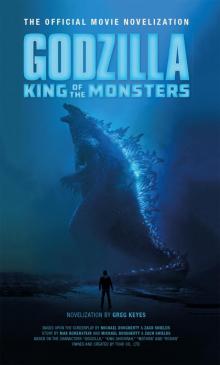 Godzilla
Godzilla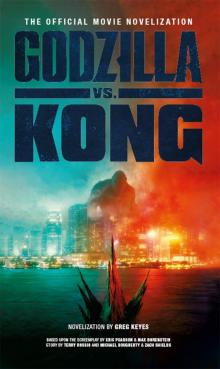 Godzilla vs. Kong
Godzilla vs. Kong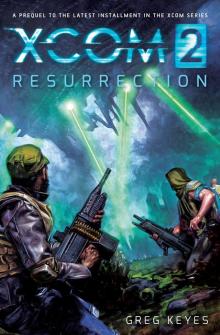 XCOM 2- Resurrection
XCOM 2- Resurrection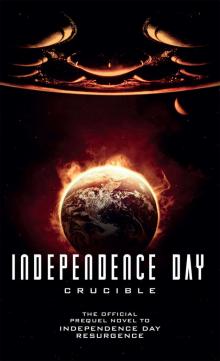 Independence Day: Crucible (The Official Prequel)
Independence Day: Crucible (The Official Prequel)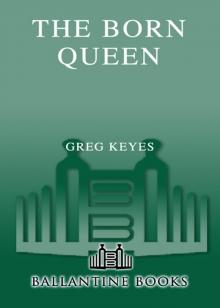 The Born Queen
The Born Queen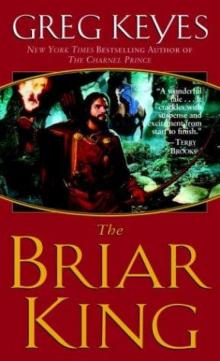 The Briar King
The Briar King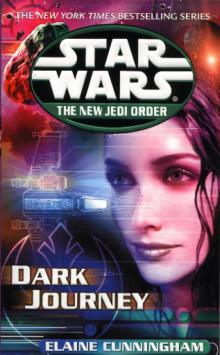 Star Wars The New Jedi Order - Dark Journey - Book 10
Star Wars The New Jedi Order - Dark Journey - Book 10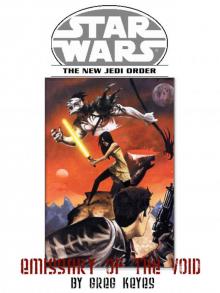 Star Wars: New Jedi Order Book 8b: Emissary of the Void
Star Wars: New Jedi Order Book 8b: Emissary of the Void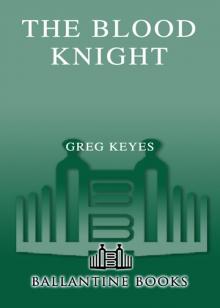 The Blood Knight
The Blood Knight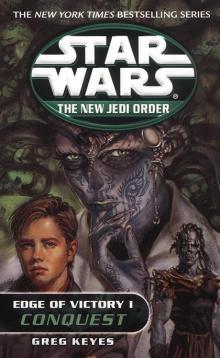 Star Wars - Edge of Victory - Book 1: Conquest
Star Wars - Edge of Victory - Book 1: Conquest Edge of Victory 2 Rebirth
Edge of Victory 2 Rebirth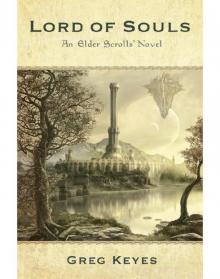 Lord of Souls: An Elder Scrolls Novel
Lord of Souls: An Elder Scrolls Novel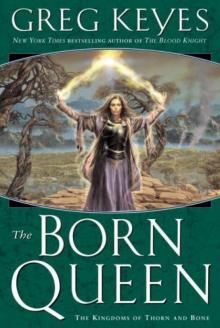 The Born Queen tkotab-4
The Born Queen tkotab-4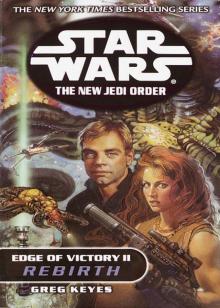 Rebirth: Edge of Victory II
Rebirth: Edge of Victory II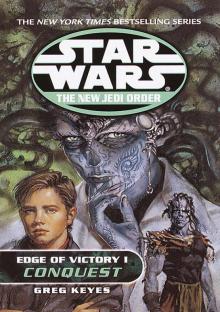 Conquest: Edge of Victory I
Conquest: Edge of Victory I Emissary of the Void
Emissary of the Void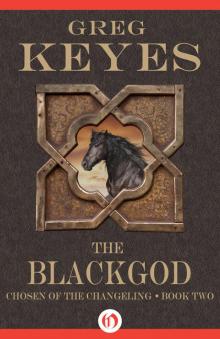 The Blackgod
The Blackgod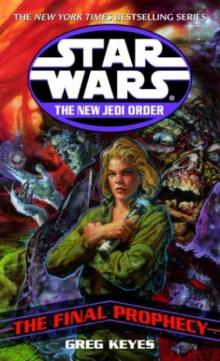 Star Wars The New Jedi Order - The Final Prophecy - Book 19
Star Wars The New Jedi Order - The Final Prophecy - Book 19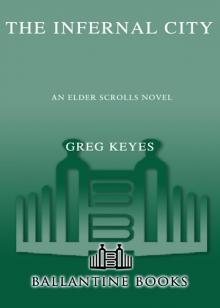 The Infernal City
The Infernal City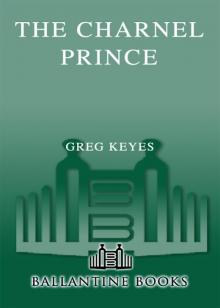 The Charnel Prince
The Charnel Prince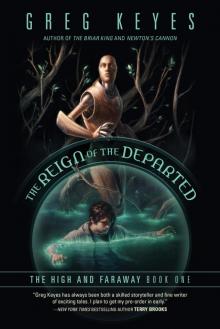 The Reign of the Departed
The Reign of the Departed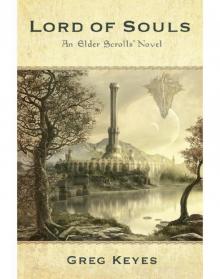 Lord of Souls es-2
Lord of Souls es-2 Chosen of the Changeling
Chosen of the Changeling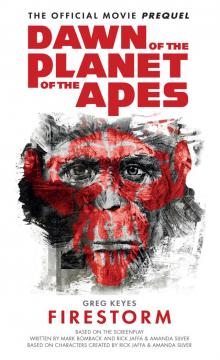 Dawn of the Planet of the Apes
Dawn of the Planet of the Apes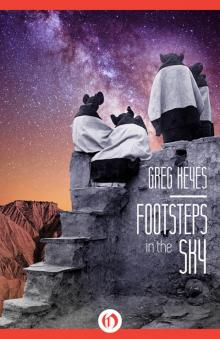 Footsteps in the Sky
Footsteps in the Sky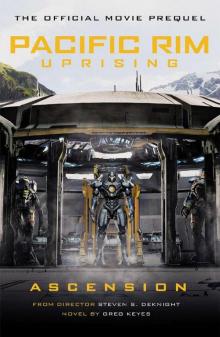 PACIFIC RIM UPRISING ASCENSION
PACIFIC RIM UPRISING ASCENSION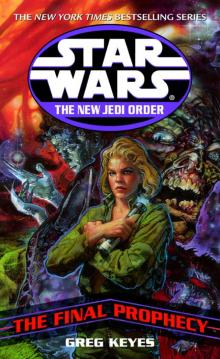 The Final Prophecy: Edge of Victory III
The Final Prophecy: Edge of Victory III